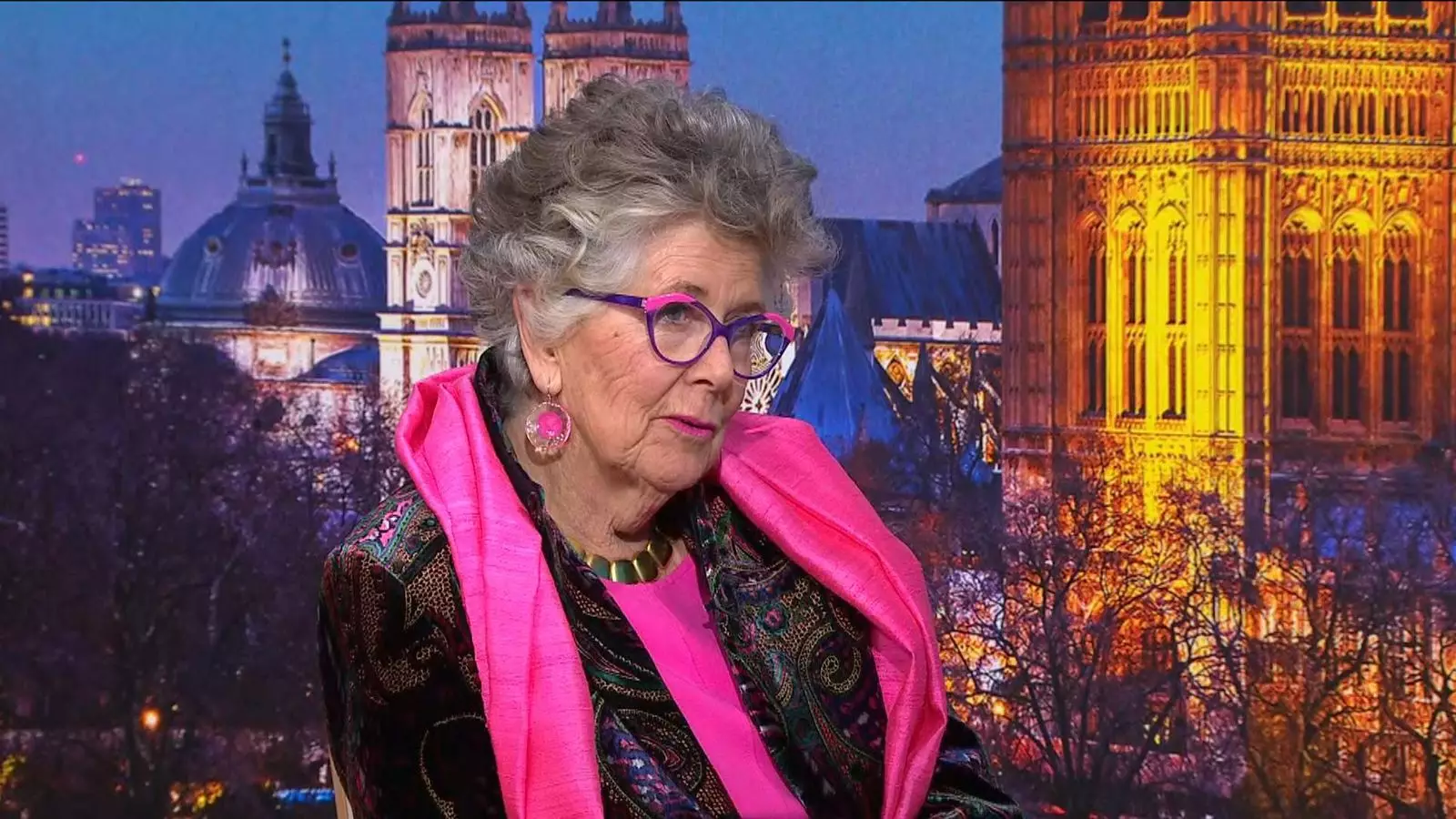In a heartfelt appeal, Dame Prue Leith sheds light on the critical and often contentious issue of assisted dying, sparking a profound discussion within society. Her personal experiences have shaped her views significantly, particularly the harrowing journey of witnessing her brother, David, endure suffering during his battle with bone cancer. As Dame Prue pushes for legislative change regarding assisted dying in the UK, her poignant narrative elevates the discourse surrounding this deeply polarizing topic.
Dame Prue’s candid recollections of her brother’s final days resonate not just as mere anecdotes but serve as powerful testaments to the emotional toll of terminal illness. She articulates a situation where conventional pain management fell tragically short, leaving David “crying, whimpering, moaning, then crying, then screaming.” Her description underscores a pressing argument: the inadequacies of current palliative care provisions. For Leith, this experience ignites a passionate plea for reform that would allow individuals facing insurmountable pain and suffering to choose their own end.
However, the debate is not as straightforward as it might seem. Dame Prue’s son, Danny Kruger, adds an intriguing layer to the conversation with his reservations regarding the assisted dying bill. As the shadow work and pensions minister, he raises concerns about the potential inadequacies of such legislation, suggesting that with adequate palliative care, the need for assisted dying would be negligible. This duality within the family illustrates a common societal schism where loved ones can hold vastly different views on sensitive topics.
While Leith’s experiences have propelled her towards a vigorous advocacy for assisted dying, her son is seemingly shielded by an emotional distance from the harrowing realities she has faced. He posits that the focus should instead be on improving palliative care rather than legalizing assisted dying. This dynamic brings to light not only a difference in opinion but highlights how personal experiences can lead individuals to arrive at radically different conclusions. The discussion of assisted dying becomes a microcosm of broader societal divisions, illustrating how personal narratives can shape public policy debates.
As Parliament prepares to debate the Terminally Ill Adults (End of Life) Bill, the stakes are high. This proposed legislation aims to legalize medical assistance for individuals over the age of 18 who are terminally ill, under specific guidelines intended to safeguard against misuse. Dame Prue’s insistence on the need for “change” resonates with allies who view the current laws as inadequate in addressing the complexities of terminal suffering. She argues eloquently that the law “is not working,” urging MPs to consider the emotional and physical agony faced by countless individuals and their families.
The proposed law has garnered support as well as fierce opposition. Advocates, like Labour MP Kim Leadbeater, argue that the safeguards incorporated in the bill are significantly robust—stronger than those in other nations allowing similar measures. Nevertheless, critics warn of a “slippery slope” towards a society where life-ending choices could become alarmingly common, raising ethical concerns about the sanctity of life. This dialogue encapsulates the broader questions society faces regarding autonomy and the right to die with dignity.
The debate over assisted dying remains fraught with emotional weight and ethical dilemmas. While Dame Prue Leith’s advocacy stems from a deeply personal tragedy, it serves as a call to action for thoughtful and compassionate dialogue around the rights of the terminally ill. Both sides of the discussion bring valuable perspectives that must be considered in crafting a meaningful and humane policy response.
As the Commons prepares to deliberate on this vital issue, it is essential for all stakeholders—advocates, policymakers, and the public—to engage with empathy and a willingness to understand differing viewpoints. Ultimately, the conversation must strive towards a nuanced understanding that respects individual experiences while addressing the broader implications of assisted dying on society. Whether or not the legislation passes, the dialogue initiated by figures like Dame Prue Leith will undoubtedly continue to shape discussions about life, suffering, and the quest for dignity at the end of life.

Leave a Reply